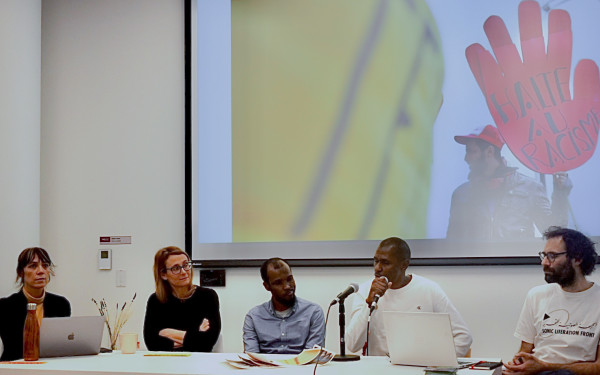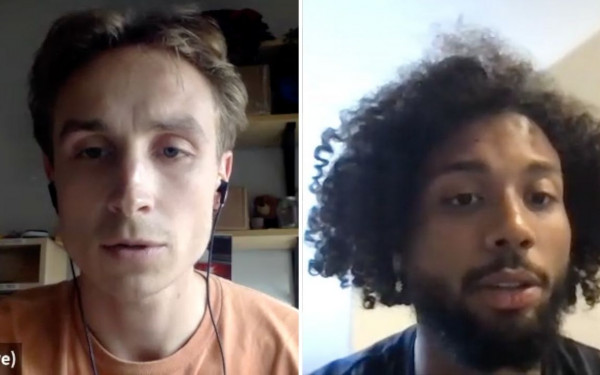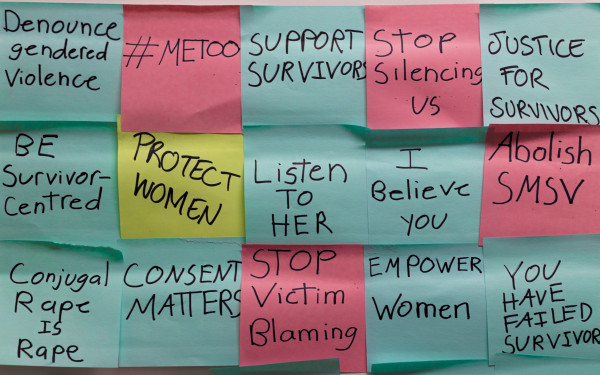‘Canada Playing a Larger Role on International Stage:’ Rae
Liberal MP Discusses World Conflicts, International Politics at Con U
“[We] are more and more deeply implicated in the world, in its conflicts, in its tragedies, in its imperfections, in its challenges,” said Bob Rae to a crowd at Concordia last week.
The Liberal MP addressed around 265 people as part of the Henri Habib Distinguished Lecture Series on Peace, Conflict and Global Politics, on Feb. 8.
For almost an hour and a half, Rae addressed the crowd and answered questions on subjects ranging from the importance of open international relations to the “cataclysmic consequences” of the decisions that led to the recent global financial crisis.
“Of necessity, we’re going to have to create stronger international institutions to deal with this kind of problem,” he said. “We can’t deal with these questions in isolation.”
The majority of the speech concentrated on general attitudes towards foreign relations and the historical importance of engaging in global politics, but Rae did address some of the recent events in Egypt and around the Middle East.
“The best way to understand a great many of the conflicts that we’re seeing is as a people who are aspiring to change systems of brute power into systems of legitimate authority,” said Rae. “And if we in the West are on the side of brute power and not on the side of legitimate authority, then we are in deep trouble.”
He also said that “creating security” is the “first order question” in response to a question about why Canada is conducting training missions in Afghanistan and the West Bank.
“[He] gave us historical precedence and analogies that many of us […] tend to forget,” said Professor Henri Habib about Rae’s speech. Habib, for whom the lecture series is named, is one of the founders of Concordia’s political science program.
“He was also able to bring a balance between the Israeli concern and the Palestinian concern,” added Habib. “Which I haven’t heard from a Canadian politician.”
Rae spoke of the “two narratives” held by Israelis and Palestinians that needed to be recognized before the peace process could succeed.
Habib also said that when it comes to the recent protests in Tunisia, Egypt, Yemen and throughout the Middle East, “we’re failing.”
“We don’t want to upset the security question,” said Habib in regards to the slow support of the West for other protests against Middle Eastern regimes. “It’s a delicate balance between security on one hand and the values we have on the other […]. But it should never come at the expense of giving up our own values.”
During the question period, some audience comments directly challenged Rae, saying that there was a double standard applied to Israel’s actions, such as its building of settlements in the West Bank in violation of international law.
“I think we need to be as strong and effective a champion of the creation of a Palestinian state as we have historically been for the creation of the state of Israel,” said Rae in an interview with The Link before his address.Rae defended Canada’s general foreign policy during the question period and emphasized what he thought was the important historical role that the country has played in the Middle East, but steered clear of making any specific critiques of the current government’s foreign policy.
“I actually hoped he would get a bit more into party politics,” said Erik Anderson, a political science major at Concordia who attended the talk. “But he tried to steer clear of party politics and spent most of the time speaking about his outlook on international relations in general.”
Anderson said he was also disappointed that most of the people in the audience appeared to be in “their golden years” and that there were not more young people present.
This article originally appeared in Volume 31, Issue 23, published February 15, 2011.

__700_1054_90.jpg)




_600_375_90_s_c1.jpg)
